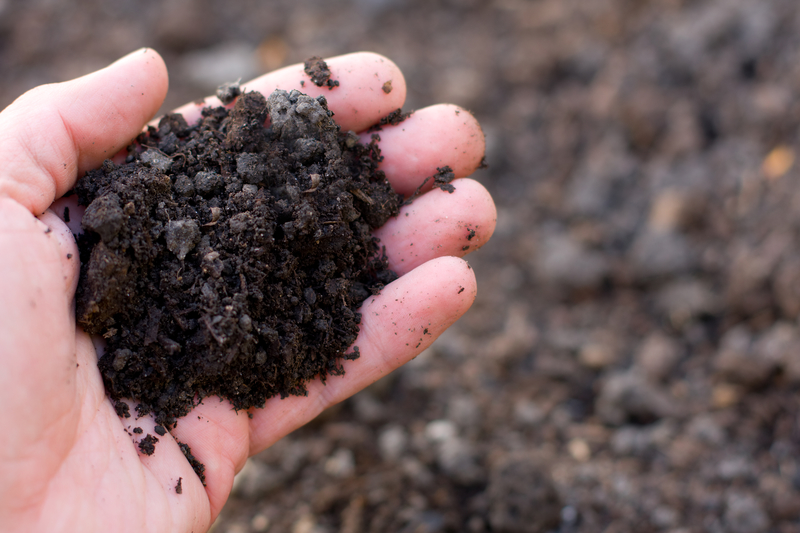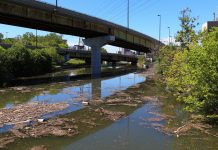The recent announcement “4 pour 1000” by the French Minister of Agriculture, Stéphane Le Foll, communicating a new concept for mitigating climate change through the reduction of CO2 by an annual increase in soil organic carbon in agricultural soils by 0.4%, has demonstrated a new dimension of environmental politics. His concept was immediately backed by more than 20 European ministers and further high ranking politicians and decision makers during the World Climate Conference in Paris in December 2015, indicating that clear targets for environmental policy are highly needed. – Indeed, this concept will not only lead to reduced CO2 emissions but also aims at improving soil fertility to meet the worldwide challenge of food security and fosters further environmentally important land and soil functions.
Why could this concept not have been formulated earlier by the science community? Are today’s scientists too specialised and no longer able to develop overarching concepts, solving complex environmental problems such as climate change? – What will be the answer to science to this clearly formulated challenge? – How can the concept “4 pour 1000” be put into operation? – On which land surfaces and soils can it be applied successfully, in view of the fact that there are hundreds of different soils and local climatic conditions in Europe? – Moreover, which type of agricultural land management is needed to reach this goal?
In order to answer all these questions, it is of paramount importance to have sufficient physio-geographical and technical-scientific knowledge available. – Looking into the research results accomplished during the last 2 – 3 decades within the research programmes funded by the European Commission, national research organizations and the private sector reveals that a careful evaluation may give the necessary answers. The author is convinced that by evaluating existing research data published in the many EU and further projects – even without a clear focus on the concept in question – can indicate land management options and combine this knowledge with detailed European land and soil information data accumulated by EUROSTAT, JRC-ISPRA and national research institutions.
An interesting example of such a procedure is a project supported by the RISE Foundation in Brussels in cooperation with EU projects of the 7th Framework Programme such as “Catch-C” (Compatibility of Agricultural Management Practices and Types of Farming in the EU to enhance Climate Change Mitigation and Soil Health), SoilTrEC (Soil Transformations in European Catchments) and others. Moreover, EUROSTAT, JRC-ISPRA (European Soil Bureau), and national institutions such as for example the Federal Institute of Geosciences and Natural Resources, Germany, made basic land and soil data of the EU 25 (28) available such as LUCAS Topsoil data, the European Soil Data Base, and the CORINE land use cover. For more information see the report on “The Sustainable Intensification of European
Agriculture” ( www.risefoundation.eu ). This report shows that about 41% of European soils can be used for sustainable intensification of agriculture, taking into consideration that sustainable agricultural management of land and soil does not only mean food and fibre production but also filtering of rainwater, producing clean groundwater and maintaining soil biodiversity, the basis of the largest gene reserve of our planet. Moreover, this report also made clear that on about 4% of European soils the current agricultural production should be intensified in order to meet sustainable environmental conditions. 43% of the current European agricultural cropping area is not suitable for intensification, and on 12% intensification is restricted due to specific constraints. Amongst the basic land and soil characteristics for the identification of these results, the amount of soil organic carbon was of paramount importance.
Additionally, the concept of “4 pour 1000” offers further opportunities for solving most important issues in environmental policy, especially the recycling of nutrients and valuable organic residues in urban and agricultural waste concentrated in areas with intensive livestock production and urban agglomerations. These residues could be used in areas with a lack of nutrients and organic carbon, e.g. in intensive agricultural cropping areas or in regions like the Mediterranean area with a general deficit in organic C in most of the soils due to climatic conditions, especially high annual temperature which increases the biological/ microbiological decomposition of organic matter and the production of CO2. Some promising approaches for solving these problems could be demonstrated in the above-cited review sponsored by the RISE Foundation.
Therefore, this concept “4 pour 1000” offers the opportunity for a comprehensive approach by improving land and soil conditions for very diverse goals, ranging from the mitigation of climate change to the improvement of soil fertility for food and fibre production, the maintenance of biodiversity, and a more efficient filtration of rainwater providing clean groundwater resources for drinking water purposes. As a result, it can be stated that through the sequestration of soil organic carbon three main basic human needs can be met: acceptable and convenient living conditions through mitigation of climate change, production of sufficient and healthy food, and sufficient drinking water resources.
In order to raise awareness in the broad public and to foster sustainable agricultural land and soil management as defined by the EU Thematic Strategy for Soil Protection [COM (2006) 231], the European Landowner’s Organization (ELO), under the auspices of the European Commission (DG Environment and the JRC) and in association with the University of Natural Resources and Life Sciences (BOKU), Vienna, the Centre for Soil and Environmental Sciences of the Ljubljana University as well as Syngenta International AG created the “Land and Soil Management Award”. This prize rewards professionals working in the area of land use and soil management ( www.elo.org/awards/soil-land-award ).
Winfried E.H. Blum
Emeritus Professor of Soil Science, former Secretary General of the International Union of Soil Sciences (IUSS) and Founding President of the European Confederation of Soil Science Societies (ECSSS)
University of Natural Resources and Life Sciences (BOKU), Vienna/Austria
Tel: +43 1 47654 3101
winfried.blum@boku.ac.at
https://forschung.boku.ac.at/fis/staff?name=WinfriedE.H.Blum











